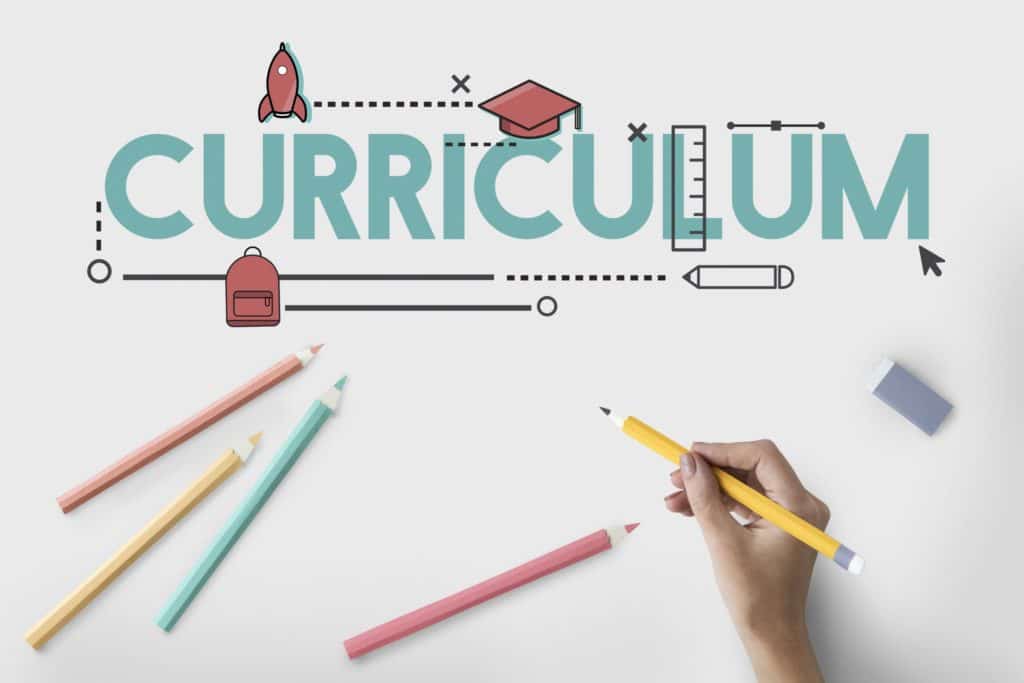What is a Curriculum Specialist?
Curriculum specialists have an essential role in schools and districts. The description of their job varies slightly from school to school and district to district; however, the primary responsibility of curriculum specialist jobs is to specialize in curriculum and instruction, to help improve instructional practices, and increase student learning.
Many districts house one curriculum specialist within each school. At their particular site, these curriculum specialists, sometimes referred to as instructional coaches, are expected to meet with teachers at least weekly to:
- Review lesson plans
- Co-teach
- Select instructional resources and materials
- Assist struggling teachers
- Provide instructional feedback
- Deliver professional development
Curriculum specialists also serve as leaders within the school as teachers look to them to model instructional and ethical practices. They often help lead teachers down paths of change and growth and sometimes serve as a liaison between the teachers and administration.
If you are considering a career as a curriculum specialist, it’s important to consider the training and education needed to fulfill this position, the skills needed to meet the position’s requirements, and the value that a curriculum specialist has at their particular site. One might also want to consider the impact that the pandemic has had on curriculum specialists and how this has influenced their role in education.
Curriculum Specialist: Education and Training
To become a curriculum specialist, one must first work to earn and obtain a bachelor’s degree in education or a related field. To specialize in curriculum, curriculum specialists must have plenty of experience teaching students, ideally in various grade levels and settings. Most curriculum specialists then obtain a master’s in curriculum and instruction or doctorate in curriculum and instruction.
During their studies within curriculum and instruction graduate programs, they will participate in courses that help them build capacity regarding curriculum development, curriculum mapping, program evaluation, developing leadership skills, implementing educational theory and practice, and more.
Master’s programs in the area of curriculum often require candidates to participate in practicum work where they will be exposed to real-world educational leadership opportunities and experiences.
Curriculum Specialist: Skills Needed to Be Effective
In addition to obtaining the required degrees to achieve a job as a curriculum specialist, one must also develop the skills needed to be effective curriculum leaders. This means that curriculum specialists must be aware of educational policies, guidelines, and mandates. They must also communicate well with others and provide constructive feedback that will help teachers improve their practice.
Some of these skills include, but are not limited to:
Leadership
Curriculum specialists must be able to meet regularly with school administration and work in collaboration with them to meet district and school requirements. They must also be able to model leadership skills and help others develop leadership qualities.
Critical Thinking
Curriculum leaders should have the ability to think critically about:
- Teaching methods
- Resources needed
- Student performance
- Data
- Ways to help teachers increase their capacity for providing instruction
These don’t always come easy and often requires some problem solving and outside-of-the-box thinking.
Communication
Curriculum specialists must be able to communicate to teachers regarding instructional changes within the district, discuss teaching strategies, provide feedback to teachers, and accept feedback themselves. They must be able to form relationships with staff and also be able to communicate with important stakeholders, including district leaders, teachers, parents, families, and students.
Decision-Making
Leaders in curriculum must be able to participate in making important decisions about instructional practices, curriculum design, and change. This requires curriculum specialists to think critically and thoughtfully, make decisions about what’s best for students, and how to best assist teachers in implementing instruction.
Supportive
Curriculum specialists must listen to teachers’ concerns and take their observations of instruction seriously to provide support to teachers. Just like students, teachers have diverse needs as well. Curriculum specialists must be able to identify the individual needs of teachers and help teachers improve upon those areas.
What Value Does a Curriculum Specialist Provide Teachers?
The value of curriculum specialists is significant to both teachers and administrators. These values have both similarities and differences and are vital to the operation and improvement of the school. To teachers, curriculum specialists serve as a trusted human resource. This human resource is often an observer, a supporter, and a wealth of knowledge regarding how teachers can help students grow.
Since curriculum specialists don’t officially evaluate teachers in the licensure system, teachers often feel less threatened in receiving feedback regarding instruction when it comes from curriculum specialists. This allows a special relationship to be formed; this relationship can be one of support, trust, and constant growth.
What Value Does a Curriculum Specialist Provide Administrators?
Likewise, curriculum specialists are often trusted by administrators. Administrators trust that curriculum specialists are keeping a pulse on the needs of teachers and students within their schools and expect them to communicate these needs to them regularly.
Administrators often look to curriculum specialists for advice and guidance when selecting materials, delivering professional development, and helping struggling teachers move from developing to proficiency and beyond.
How has COVID Impacted Curriculum Specialists?
Just as the COVID-19 pandemic has impacted all jobs across the nation, it has also impacted that of the curriculum specialist. Curriculum specialists had to quickly help teachers adapt to online and hybrid learning when the pandemic started. Due to this, they have gained new knowledge and skills regarding how students can learn virtually and what online tools are available to students in need.
Many of the online strategies and resources used during the COVID-19 pandemic can be worked into the classroom to benefit students as things return to normal. The pandemic has given all educators, including curriculum specialists, a new look at how technology can benefit students, students’ social-emotional needs, and how they can assist teachers in using technology to help students that may not be getting what they need in traditional settings.
Teaching and learning are most important at the core of schools and districts. Curriculum specialists help support the improvement of teaching and learning through communication and collaboration with teachers, administrators, and district leaders. They help bridge the gap between district expectations and classroom realities and are vital in helping schools continually make educational improvements.
Are you passionate about curriculum and instruction and want to look into the world of curriculum specialists? Check out our available curriculum and instruction graduate programs and advance your career today!




